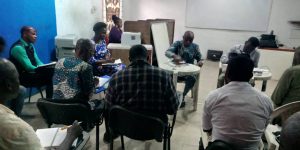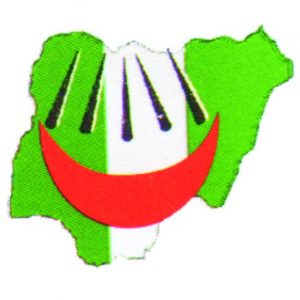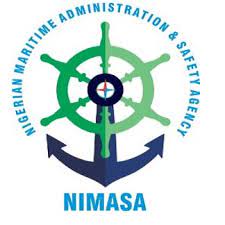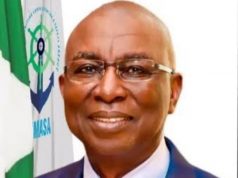’Time is ripe to disburse carbotage fund diligently’ – MAJAN
BY Omenihu Alfred
There has been a growing concern among Nigerians on the inability of the country to finance her budget every year. The Federal Government over the years has struggled to finance its budget mainly due to low revenue, which is susceptible to oil price volatilities. The Federal Government only generated 68% of its prorated budgeted revenue of N4.75tn as at July 2020 despite adjusting the official exchange rate for revenue conversion to N360/US$1 from N306/US$1 previously. This has resulted in an increasing budget deficit for the country and increased borrowing by the government from both domestic and international bodies. As at the end of September 2020, the nation’s public debt stood at a total of N32.2tn and with the planned borrowing of N4.69tn to finance the budget deficit, total public debt is expected to rise to c.N36.89tn by December 31, 2021.
When President Muhammadu Buhari signed the 2021 appropriation bill of N13.59tn into law alongside the Finance Bill 2020 to run concurrently, tagged “Budget of Economic Recovery and Resilience” the appropriation bill shows an expected revenue of N7.99tn and aggregate estimated expenditure of N13.59tn. This implies a budget deficit of N5.60tn which would be financed mainly by borrowings of N4.69tn, privatization proceeds of N205.15bn and finally project linked bilateral & multilateral loans of N709.69bn which is the highest in the history of Nigeria. A further analysis of the 2021 appropriation bill shows that c.24% of the total expenditure is designated for debt servicing. Analysts have continued to be highly concerned about the nation’s debt service to revenue ratio which shows the country may be heading towards a debt crisis should the borrowings continue in face of limited finances to support existing debt obligations.

Consequently, the maritime journalists association of Nigeria (MAJAN) in their congress yesterday at Apapa, Lagos believes the nation can surpass its oil revenue and meet up to her annual budget if proper attention is given to the maritime sector. The President of the Association Comrade Ray Ugochukwu mentioned few Countries like Singapore, Denmark, Philippine, Egypt, among others that have developed into maritime superpowers through the Deep Blue Economy.
So many Nigerians have called for increased participation as President Muhammadu Buhari, GCFR, performs the official launch of the assets under the Integrated National Security and Waterways Protection Infrastructure, also known as the Deep Blue Project on the 10th of June in Lagos. The Maritime Security Unit (MSU) of the Deep Blue Project, comprising personnel from the Nigerian Navy, Nigerian Army, Nigerian Air Force, Nigeria Police, and Department of State Services, are conducting simulation exercises for the event on the land, air, and sea assets of the Project to confirm their readiness for full deployment. It is worthy of note that the various military formations in the region are aware of the exercise. While this exercise is on-going, members of the public, especially those living in coastal communities, are advised to remain calm, as this exercise is only meant to test the readiness of the assets. The Project, which was initiated by the Federal Ministry of Transportation and Federal Ministry of Defence, is being implemented by NIMASA.
According to Director General of the Nigerian Maritime Administration and Safety Agency (NIMASA), Dr. Bashir Jamoh, “With the deployment of the assets of the Deep Blue Project, we are entering another level of national security designed for total spectrum maritime security and better domain awareness using some of the latest technology.
“This effort to secure our waters would give Nigerians more leverage to harness the enormous resources of our maritime environment and aid the drive towards economic diversification.”
The main objective of the Deep Blue Project is to secure Nigerian waters up to the Gulf of Guinea. The Project has three categories of platforms to tackle maritime security on land, sea, and air.
The land assets include the Command, Control, Communication, Computer, and Intelligence Centre (C4i) for intelligence gathering and data collection; 16 armoured vehicles for coastal patrol; and 600 specially trained troops for interdiction, known as Maritime Security Unit. The sea assets include two Special Mission Vessels and 17 Fast Interceptor Boats. The air assets comprise two Special Mission Aircraft for surveillance of the country’s Exclusive Economic Zone (EEZ); three Special Mission Helicopters for search and rescue operations; and four Unmanned Aerial Vehicles.
The Deep Blue Project is the first integrated maritime security strategy in West and Central Africa with the aim of tackling the incidences of piracy, sea robbery, and other crimes at sea.
While prosecution of suspected criminals used to be a challenge, the Suppression of Piracy and Other Maritime Offenses (SPOMO) Act passed by the 9th National Assembly would now provide a legal backing for prosecution and punishment of offenders.
In the communique of the maritime journalists association of Nigeria (MAJAN) at a special congress focused on NIMASA’s deep blue project held on Tuesday 8th June, 2021 in Lagos, the association agreed that It is critical at this time to align with government in this all important exercise to ensure the safety, security and preservation of the nation’s maritime domain. They believe that maritime industry contributes significantly to the nation’s revenue generation after oil and gas and everything must be done to maintain its position as a valuable contributor to national development.
In view of the current efforts by NIMASA to develop a strategy to confront the hydra-headed problem of maritime insecurity, with the deployment of the assets of the Deep Blue Project, the association congratulates the Director General of NIMASA, Dr. Bashir Jamoh for this milestone achievement.
MAJAN understands that NIMASA is working with the Nigerian Navy, the Nigerian Army, the Nigerian Airforce, the Nigeria Police, the Office of the National Security Adviser and the Department of State Service to evolve a common front to tackle the menace and this collaboration is highly commendable and if this project is fully implemented, Nigeria will become the maritime hub in Africa.

In view of the above, MAJAN at the Special Congress in Lagos came up with key recommendations for the success of the Deep Blue Project.
1. MAJAN commends NIMASA for this laudable project which is aimed at tackling the incidents of piracy, sea robbery and other maritime crimes;
2. The Association believes that Nigeria must tap the good potentials of the sea by investing heavily in capacity-building, infrastructure, ship building and seafarers development;
3. The Deep Blue Project is bound to engender massive jobs creation, add to the nation’s Gross Domestic Product and increase Consolidated Revenue to fund the national budget;
4. It is our belief that the Deep Blue Project will be more effective and sustainable if there is a policy framework to support and drive it. This is to avoid the truncation of the project,as it is always the case in Nigeria, should there be a future change in administration.
5. The Deep Blue Project must be driven by an assemblage of maritime experts and technocrats for the objectives to be fully realised;
6. The Promoters of the Deep Blue Project must ensure that they carry along key industry stakeholders to ensure their buy-in and full participation, commitment and investment;
7. MAJAN calls on the Federal Government to urgently disburse the Cabotage Vessel Financing Fund (CVFF) to indigenous maritime operators to enable them leverage on the initiative;
8. There is no doubt that the Deep Blue Project will lead to diversification of the nation’s economy with the attendant foreign exchange earnings;
9. Finally, MAJAN believes the nation can surpass its oil revenue if proper attention is given to the maritime sector. Countries like Singapore, Denmark, The Philippines, Egypt, among others, have developed into maritime superpowers through the Deep Blue Economy.










